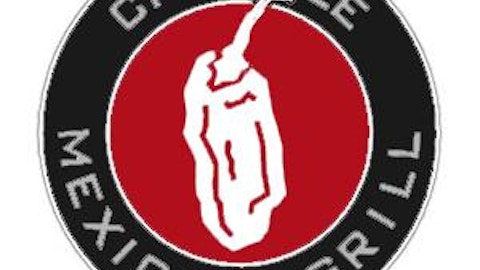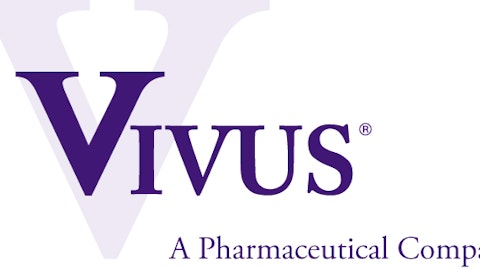Regardless of whether you’re entirely for the Patient Protection and Affordable Care Act, vehemently against it, or fall somewhere in between, it’s set to become the law of the land on an individual basis in less than five months.
Public opinion on the highly controversial law, known also as Obamacare, has been swinging decisively toward pessimism in recent months, with the Kaiser Family Foundation’s most recent poll demonstrating that there are twice as many people who have a “very unfavorable” view of the law as opposed to those who have a “very favorable” view (30% versus 15%). Add on the almost incalculable human and technological effort that’s going to be needed to meld the cloud-based technology and educational aspects of this bill and you have countless reasons for uncertainty from citizens.

Source: White House on Flickr.
The spark Obamacare needs However, data from a recently released Gallup poll may provide some of the spark needed to fuel the fire for Obamacare. The Gallup poll in question examined the correlation between the Gallup-Healthways Well-Being Index — a measure of health that includes factors such as access to health care, emotional and physical health, a person’s work environment, and their physical behaviors — and the incidence of heart attacks. The findings confirmed that metros in the bottom 10% of the Well-Being Index had a two time greater risk of having had a heart attack at some point in their lives than the top 10% of the Well-Being Index — 5.5% versus 2.8%.
To some of you, this might be a bit of “Duh!” moment — and you’re partly right… it is! If the overall Well-Being Index for a metro is lower because of unhealthy personal habits and a tough socioeconomic environment, it probably isn’t surprising to see heart attack rates track higher in these regions as well. But, out of the multiple factors that go into calculating the Well-Being Index, only two have dropped since 2008: work environment and health care access!

Obamacare intends to fix this by expanding government-sponsored Medicaid to some 16 million people that currently don’t qualify for it. In addition, individuals that make up to four times the national poverty level could be eligible for up to some form of subsidy with regard to their health insurance premium. By drastically improving access to health care for these millions of Americans, it’s expected that overall well-being will rise.
Another factor to keep in mind here is that most Americans get quite a bit of their health advice from their doctor. Another recent Gallup poll released last week looked at how often respondents said their doctor discussed with them the benefits of exercising regularly or eating a healthy diet. The poll results showed that 71% of physicians discussed exercise with patients and another 66% discussed the benefits of a proper diet. There’s no doubt in my mind that doctors are one of the greatest health influences out there, so if we can get more people to go to the doctor, they are more liable to follow the advice of their physicians and try to exercise more and eat healthier.
Which stocks might benefit? Looking at this from an investment perspective, there are a lot (and I really do mean a lot) of potential winners under the proposed Medicaid expansion. As long as the U.S. government is able to effectively spread awareness of health care access to the public that qualifies for it, the result should be expanded doctor visits and a probable boost in business for everything from insurers to certain types of restaurants.
The obvious beneficiary here would be hospitals in general and insurers that rely heavily on Medicaid-based members. The insurer I’ve turned to on multiple occasions that’s very eager to see the individual mandate go into law is WellPoint, Inc. (NYSE:WLP), which purchased Amerigroup last year to become the nation’s largest Medicaid-based health-benefits provider. Even with a medical loss ratio cap of 80% and the fact that Medicaid-based members may come with lower margins than members who pay for their own deductible, the sheer number of new members that should be introduced into its Blue Cross Blue Shield plans should provide a big bump to its bottom line profits.
Drugmakers could also see a sizable move to the upside as preventative and reactionary medicine takes off in lower-income metros. Because of poor health habits and food choices in many areas ranked among the lowest in the Well-Being Index, drugs that counter obesity or treat the most common obesity-caused disease — type 2 diabetes — could be in for a sizable jump in orders.
The market for weight-control management drugs is a hotly contested race between two drugs currently approved by the Food and Drug Administration: Belviq by Arena Pharmaceuticals, Inc. (NASDAQ:ARNA) and Qsymia by VIVUS. Each drug possesses its own unique advantages with Qsymia delivering a higher percentage of weight loss in clinical trials, while Belviq presented the more favorable safety profile. If I had to choose, I’d bet on physicians preferring the safety profile on Belviq above all else, but there’s also enough room here for both drugs to succeed.
Let’s not forget about Johnson & Johnson (NYSE:JNJ)‘s Invokana, either, which could become the new staple in treating type 2 diabetes. Approved earlier this year, Invokana is an SGLT-2 inhibitor that works out of the kidneys as opposed to the liver or pancreas for most other diabetes medications. In addition to providing for better glycemic balance, Invokana also has this incredible side effect of inducing weight loss and lowering blood pressure in patients, which is a welcome reversal of the weight gain most often witnessed with many types of diabetes medications.
The not-so-obvious beneficiaries But, there are more beneficiaries than meets the eye if you dig a bit deeper.
I certainly wouldn’t fault you for associating Xerox Corporation (NYSE:XRX) with copy machines and other print services, but the company has moved the majority of its revenue into information technology and services. Specifically, Xerox Corporation (NYSE:XRX) has become a gigantic processor of Medicaid claims in the state of California… which also happens to be WellPoint’s biggest market opportunity to pick up new Medicaid-based members. In California alone, 1.4 million new people (nearly 10% of the expected 16 million) are expected to be included under its expanded Medicaid program. With Xerox being the exclusive processor of Medicaid payments in the state, it could be in line for a huge pick-up in business.
Also, don’t discount the idea that Medicaid-expansion patients won’t go to their doctor and take their physicians’ advice to heart. This doesn’t exactly mean that organic grocers like Whole Foods Market will necessarily see a bump in sales because their doctor says to eat healthier, but it could mean a rise in traffic for fresh-Mex casual diner Chipotle Mexican Grill, Inc. (NYSE:CMG). Chipotle’s “Food With Integrity” promise ensures the use of meat that’s been free of antibiotics and hormones. Chipotle Mexican Grill, Inc. (NYSE:CMG) also uses local organic produce at many of its locations. Although organic food may not always be price-practical for lower-income households, Chipotle’s prices are currently very comparable to many less-healthier fast food restaurants, and it has locations in many of the states where Medicaid-expansion will see the biggest rise in new members.
The article Does This Data Overwhelmingly Prove That We Need Obamacare? originally appeared on Fool.com and is written by Sean Williams.
Fool contributor Sean Williams has no material interest in any companies mentioned in this article. You can follow him on CAPS under the screen name TMFUltraLong, track every pick he makes under the screen name TrackUltraLong, and check him out on Twitter, where he goes by the handle @TMFUltraLong. The Motley Fool owns shares of, and recommends, Chipotle Mexican Grill, Johnson & Johnson, WellPoint, and Whole Foods Market.
Copyright © 1995 – 2013 The Motley Fool, LLC. All rights reserved. The Motley Fool has a disclosure policy.





